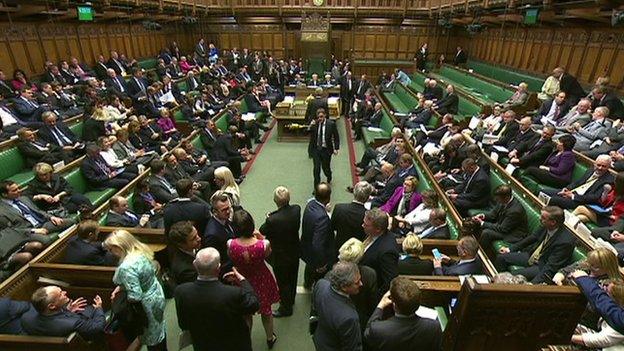EU referendum: Cameron suffers Commons defeat over 'purdah' rules
- Published
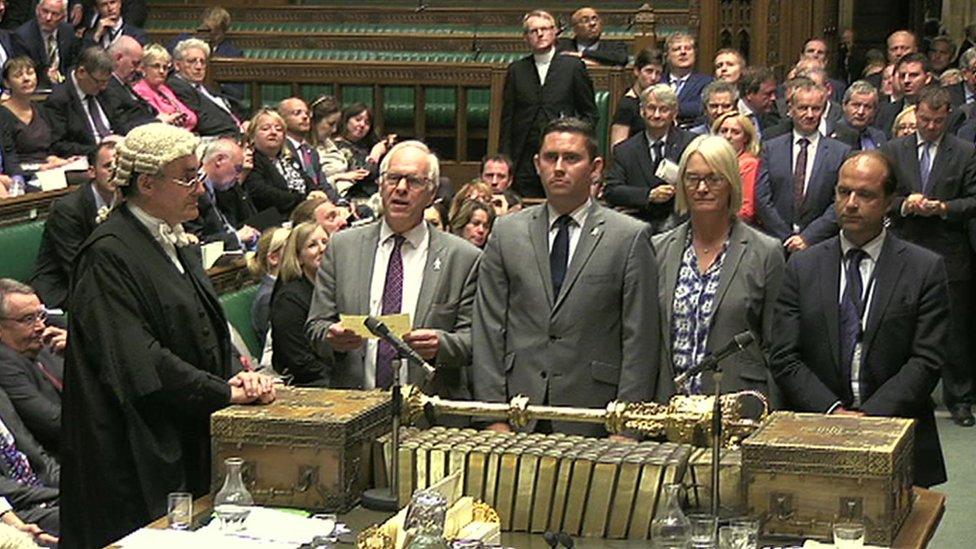
The new government has suffered its first defeat in the House of Commons, over changes to rules governing the in/out EU referendum campaign.
Ministers wanted to amend so-called "purdah" rules which limit government activity during the campaign period.
But rebel Tory MPs, along with Labour and the SNP, ensured the move was blocked by 312 votes to 285.
Earlier, the government conceded a rebel Tory amendment preventing a snap poll from being held.
Labour said the defeat was "humiliating" for the Conservative government.
MPs voted in favour of the EU Referendum Bill - which paves the way for an in-out referendum on Britain's EU membership by the end of 2017 - by 316 votes to 53, meaning it will pass to the House of Lords for further scrutiny.

What is purdah?
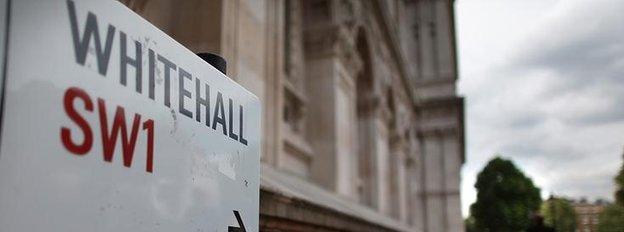
Purdah is a long standing convention whereby governments refrain from making any major announcements in the run-up to general elections or other polls to avoid influencing their outcome.
The existing rules were set out in legislation passed in 2000. They prevent ministers, departments and local authorities from publishing any "promotional material" arguing for or against any particular outcome or referring to any of the issues involved in the referendum.
The rules, which apply to the 28 days up to polling day, do not preclude ministers from issuing press notices or responding to specific requests for information from members of the public.

David Cameron had already made a number of concessions on the bill in response to Eurosceptic concerns the government could use the "Whitehall machine" to promote continued EU membership.
Ministers agreed to restore purdah restrictions for the referendum but with certain exceptions to allow ministers and others to conduct day-to-day business with the EU during the campaign period.
Arguing for a partial suspension of the normal rules, Europe Minister David Lidington said it would provide "greater clarity and certainty" on what issues are covered by purdah and what issues would be open to a legal challenge.
He concluded by saying the package of proposals put forward by the government was "balanced and fair", and one in which the whole country could have confidence.
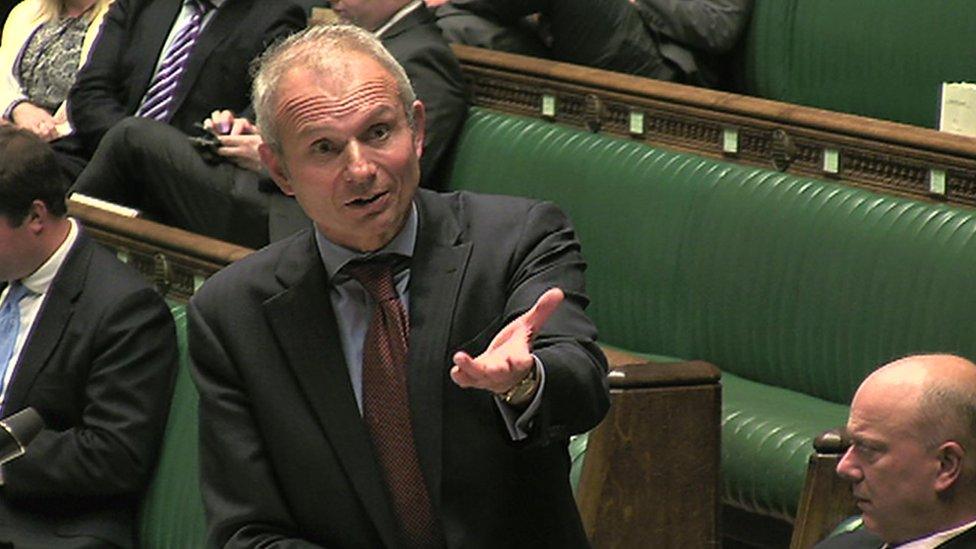
The minister insisted the changes being proposed by the government were fair
But he was accused by Tory Eurosceptic MP Sir Edward Leigh of offering "legalistic claptrap" in a bid to avoid a Commons defeat. Sir Edward said the process must be "considered to be fair" and argued for Labour's amendment - which would reinstate the full purdah rules in the bill - to be accepted.
Fellow Eurosceptic and Conservative MP Bernard Jenkin added his voice to calls for a tougher purdah regime to apply, saying the government "is taking us backwards with these proposals".
Labour's shadow Europe minister Pat McFadden, meanwhile, said the government's plans amounted to a watered-down version of purdah which could be further diluted by the proposed exceptions. He said the Opposition would only support the exceptions if the full definition of purdah was first restored to the bill.
'Humiliating defeat'
Analysis of the vote, which saw the government defeated by a majority of 27, showed that there were 37 Conservative rebels.
They included five former Cabinet ministers: Liam Fox, John Redwood, Owen Paterson, Cheryl Gillan, and David Jones, and the chairman of the influential backbench 1922 Committee of Tory MPs, Graham Brady.
Commenting after the vote, shadow foreign secretary Hilary Benn said the government had tried to play "fast and loose" with the arrangements for the referendum.
"This is a humiliating defeat for David Cameron, with members from all sides of the House supporting Labour's approach to purdah, which ensures fairness in the conduct of the referendum campaign while permitting normal government business to take place," Mr Benn said.
"The government should never have rushed through its flawed plans to play fast and loose with the rules on the referendum," he added.
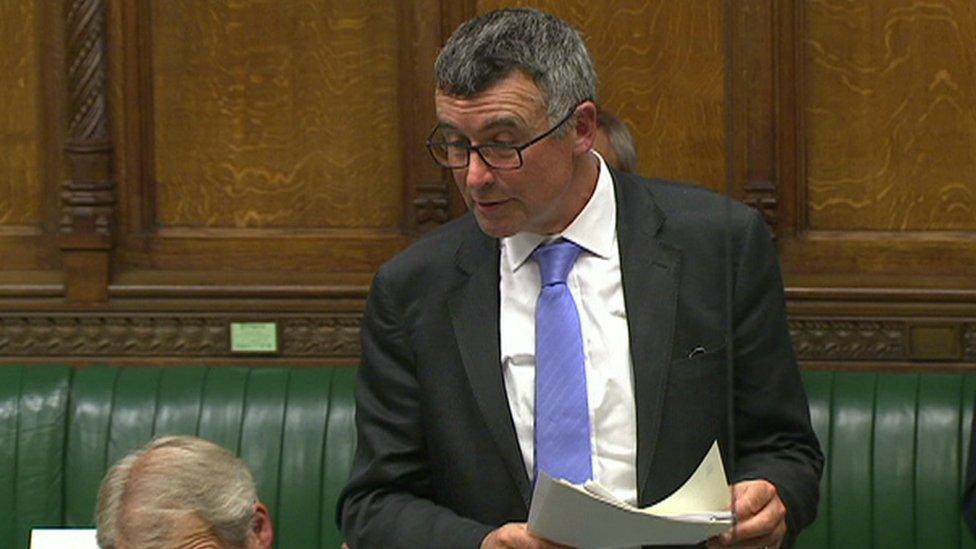
Bernard Jenkin was among the Conservative rebels to argue for stricter purdah rules to be applied to the EU referendum campaign
Earlier in the debate, the government conceded on Mr Jenkin's amendment which would prevent a snap poll from being held by requiring four months' notice of how the final purdah rules would work.
Mr Lidington said that while there were "drawbacks" to having a firm time limit he would accept the amendment "in the interests of bridge-building".
Mr Jenkin later told the Press Association that critics of the government's stance had "won the argument" and could look forward to a "fairer referendum".
No date has yet been set for the referendum on Britain's membership of the European Union but David Cameron has promised to hold the vote by the end of 2017.
The amendment had attracted support from Labour, meaning the government faced a possible defeat on it.
- Published1 September 2015
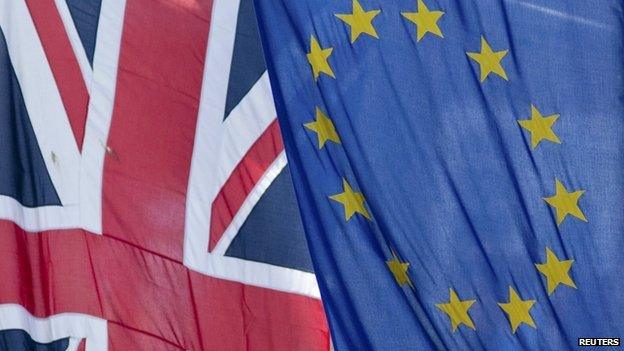
- Published1 September 2015
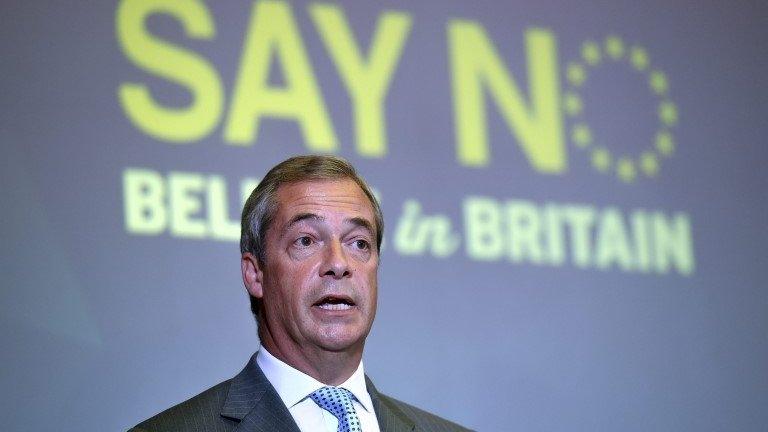
- Published16 June 2015
